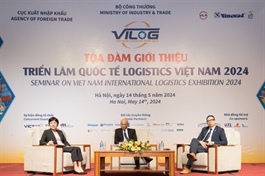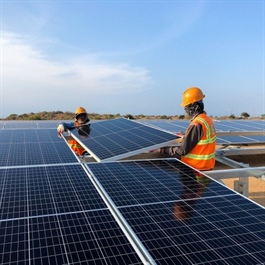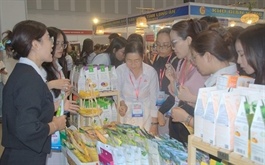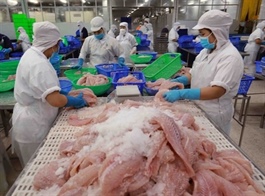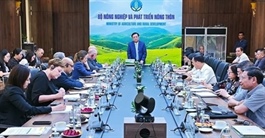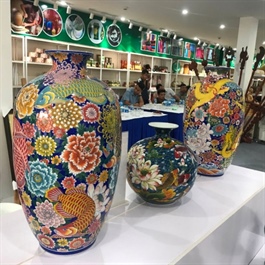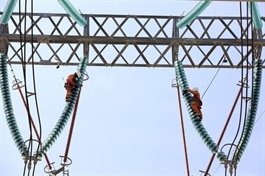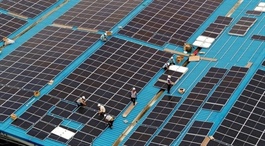Regenerative agricultural practices contribute to sustainable growth
Regenerative agricultural practices contribute to sustainable growth
The adoption of regenerative agricultural practices has improved productivity and reduced greenhouse gas (GHG) emissions, according to the second NESCAFÉ Plan 2030 progress report released by NESCAFÉ - the largest coffee brand of Nestlé Group and one of the world's favourite coffee brands.
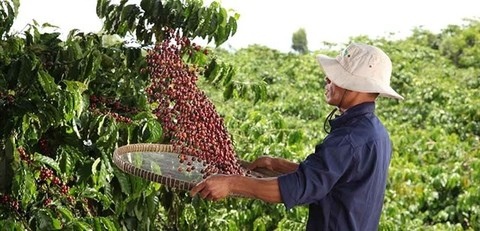
In Việt Nam, since 2011, the NESCAFÉ Plan Programme has supported coffee farmers practicing regenerative agriculture. — Photo courtesy of the firm |
In 2023, NESCAFÉ sourced over 20 per cent of its ingredients from regenerative agriculture practices. Data provided by Rainforest Alliance, an accreditation organisation for Sustainable Agriculture Standards, was obtained through monitoring and impact assessment activities conducted on farmer groups in 11 coffee-growing regions where NESCAFÉ makes its purchases. The results revealed significant improvements in coffee yields ranging from 5 to 25 per cent per hectare compared to 2022, particularly in countries like Việt Nam, Honduras, India, the Philippines and Thailand.
These positive outcomes were attributed to key measures such as optimising fertiliser usage and employing soil protection mulching techniques. By implementing these measures, NESCAFÉ also managed to reduce GHG emissions per kilo of coffee by approximately 15 to 30 per cent. Additionally, in 2023, the NESCAFÉ Plan Programme distributed 21 million coffee seedlings to farmers, aiding in the enhancement and replantation of coffee areas and increasing productivity in countries participating in the programme.
Philipp Navratil, the Nestlé Group Director of Coffee Business Strategy said: “The NESCAFÉ Plan exemplifies our steadfast dedication to securing the future of coffee, which remains a crucial priority for NESCAFÉ.
"This second progress report serves as a testament to our ongoing daily endeavors to foster collaboration with our partners, suppliers, and farmers in the coffee-sourcing regions. It also serves as a motivation for us to persistently push ourselves further.”
In Việt Nam, since 2011, the NESCAFÉ Plan Programme has been implemented by Nestlé Vietnam in the Central Highlands provinces in co-operation with the Ministry of Agriculture and Rural Development, the Central Highlands Institute of Agriculture and Forestry Science and Technology and the provincial Agricultural Extension Centres to support coffee farmers practicing regenerative agriculture.
The programme has conducted more than 355,000 training sessions on sustainable coffee farming for farmer households; supported seedlings for an average of over 10,000 households each year in the period 2011-23. It also distributed more than 74 million high-yield, pest- and drought-resistant seedlings to replant old coffee areas. By applying regenerative agriculture coffee farming methods, the programme has helped farmers save up to 40 per cent of irrigation water, reduce chemical fertilisers and pesticides by 20 per cent, and increase income by 30-100 per cent.
The programme also built 274 farmer groups, of which more than 30 per cent of groups had female farmers as group leaders, helping them receive formal professional training and then continue to impart knowledge and inspiring the farming community to practice sustainable agricultural production.
Acknowledging the significance of mutual learning, the programme has introduced a web-based platform called Agrinest. The primary objective of this platform is to facilitate global connectivity among farmers, fostering an environment where they can exchange knowledge and foster collaborative partnerships. The Agrinest is being actively utilised by over 1,600 farmers in Việt Nam and 240 farmers in Indonesia, with an anticipated surge in participation in the near future.








